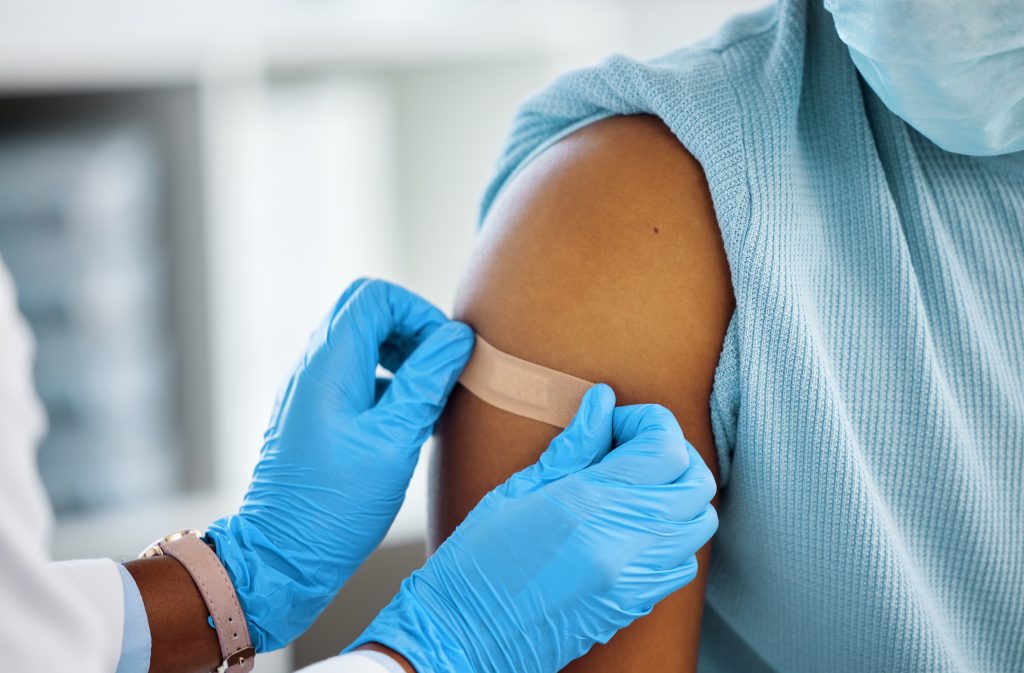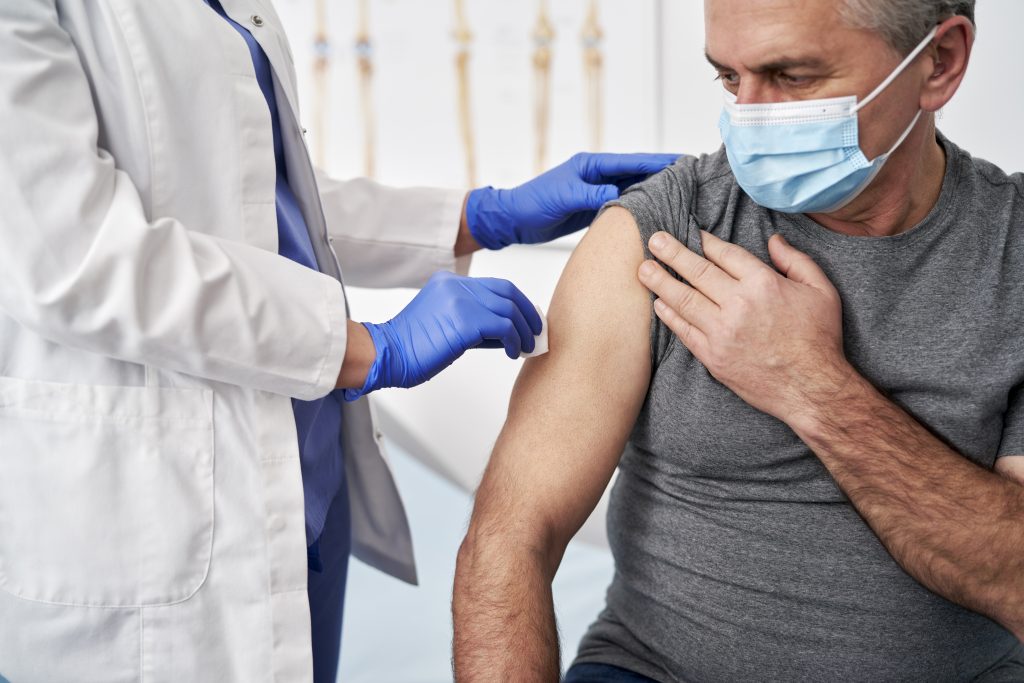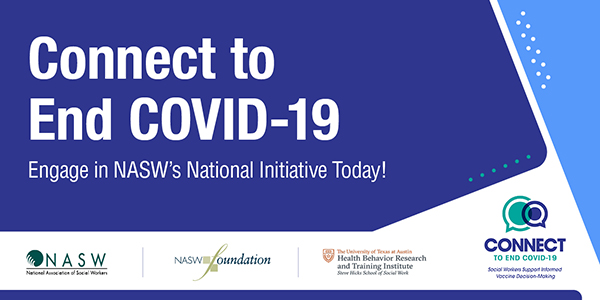By Lauren Morris, MSW, ACM, LCSW-S, Connect to End COVID-19 Ambassador and NASW (DC-VA) Member
Hospitalizations and deaths from COVID-19 are trending down according to the Centers for Disease Control (CDC) data. Still, only 17% of eligible people nationwide have received an updated booster dose. Trends noted from CDC data collected in 2021 showed the general population being fully vaccinated at 59.8% while only 25% of people experiencing homelessness (PEH) were vaccinated. These statistics indicate that vaccination rates among PEH have also dropped.
The Federal Drug Administration (FDA) began approving vaccines in late 2020. The FDA has now approved a 4th vaccine, Novavax, that is approved for a 1st and 2nd dose to children and adults age 12 and up. More information on the different vaccinations is available on the CDC’s website. Still, COVID-19 remains an active concern. Recent CDC information shows that more than 1 million people have died of COVID-19 in the US as of November 2022. The virus continues to mutate and currently we are learning about long COVID’s disease process and presentation.
The National Health Care for the Homeless Council (NHCHC) noted in a 2020 brief that PEH are at risk for experiencing chronic medical conditions as well as behavioral health concerns. NHCHC notes that demographics collected in 2018 showed 40% of the 1 million clients served were age 50 or older. These health risks alone open PEH to higher risk of infections. Additionally PEH often have limited access to hygiene facilities making it difficult to follow public health advice.
Continuing Challenges Reaching the PEH Population
Even as availability to vaccines becomes more widespread, challenges remain in reaching the PEH population. Mistrust of healthcare institutions is one factor to consider. If previous experiences with clinics where vaccines are being offered were negative, a person might not be motivated to return. Further concerns come with the need for a secondary dose and potential side effects from the initial vaccine. Adherence to masking and social-distancing guidelines remain difficult to guarantee.
The National Association of Social Workers (NASW) provides information on how to reach people with limited access to COVID-19 vaccines in the Connect to End COVID resources.

While challenges remain in the delivery of healthcare to PEH, this pandemic experience has been an opportunity to expand all health care to PEH. Some states participated in the National Health Care for the Homeless Council’s Vaccine Ambassador Project to engage people experiencing homelessness and provide education around the vaccines while also developing strategies to assist with distancing. The NHCHC recognizes some of the lessons learned from the Ambassador Project in a brief from November 2022, COVID-19 and the HCH Community: Lessons Learned from the Pandemic.
Social Workers as Trusted Messengers
Social Workers are present in many systems that PEH access, providing us an opportunity to utilize these lessons for the benefit of our clients. One important lesson learned is including people with lived experience into the decision making process when seeking new ways to connect PEH with vaccines or education in changes with the COVID19 virus. Hiring a Vaccine Ambassador into organizations working with PEH is a great way to include someone with lived experience. The expansion of virtual healthcare is another opportunity to engage PEH with healthcare professionals.

Some suggestions from the brief are to invest in portable technology that might be taken to encampments, or arrange for a private room in a shelter or resource center to allow clients to have virtual medical visits. Creating partnerships with other providers and services has been a key part of some success in distributing vaccines. One example was partnering with local food banks to provide snacks during a vaccine drive. Additionally, sharing information with local providers can assist in offering more opportunities for PEH to access a vaccine drive and potentially encounter a provider they trust. The CDC has information on arranging a mobile vaccine on its the CDC website.
As social workers, we are seen as trusted messengers by our clients, including those who may be experiencing homelessness. We meet people where they are and give them the information they need in a non-judgmental way so they can make an informed decision about vaccines and self-care. Educating ourselves about the virus and the latest developments about vaccines is the first step toward helping our clients and communities.
For more information about NASW’s Connect to End COVID-19 initiative, visit the NASW website.
______________________________________________
This project and blog post are supported by the Centers for Disease Control and Prevention of the U.S. Department of Health and Human Services (HHS) as part of a financial assistance award totaling $3.3 million with 100 percent funded by CDC/HHS. The contents are those of the author(s) and do not necessarily represent the official views of, nor an endorsement by, CDC/HHS, or the U.S. Government.




